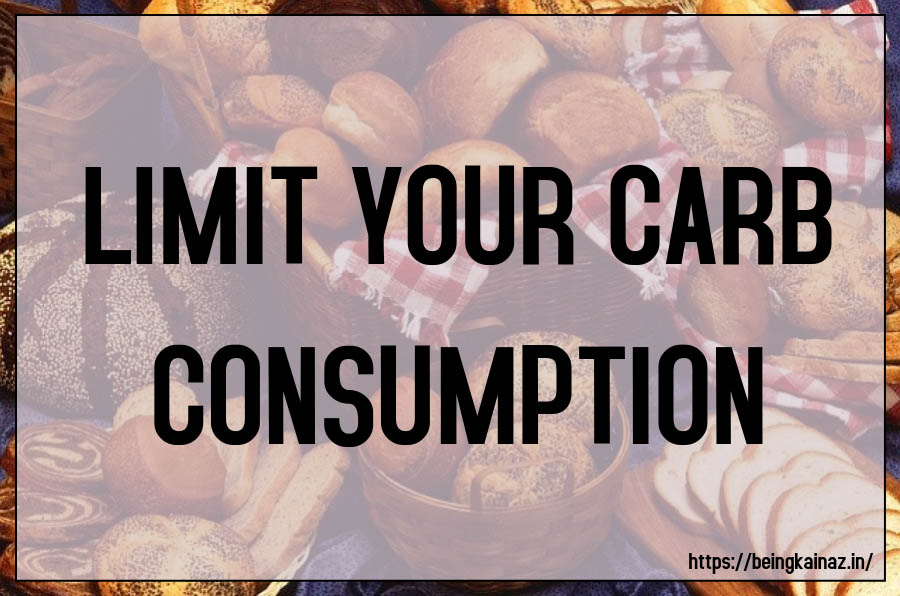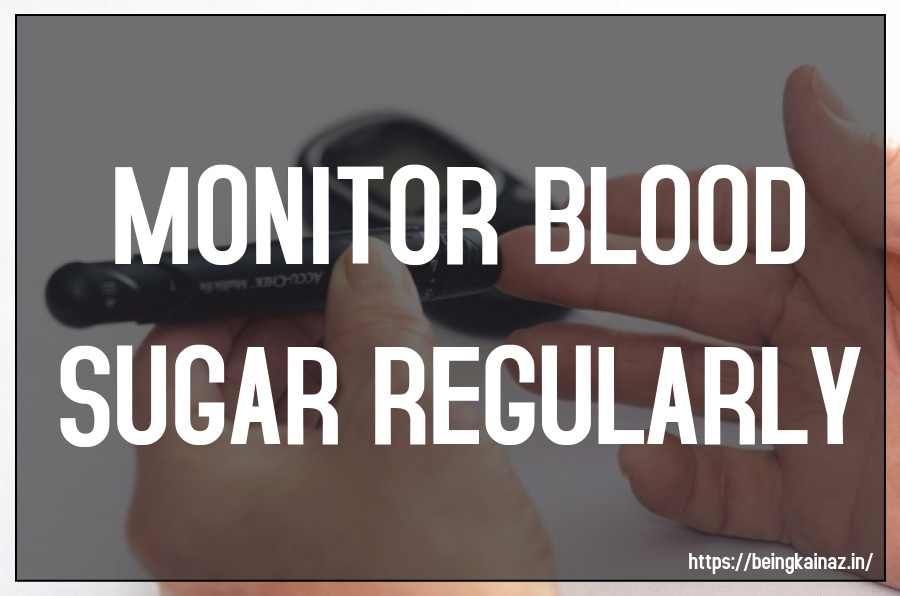
Top 8 Natural Ways To Lower Blood Sugar
A case of High blood sugar occurs when your body isn’t capable of effectively transporting sugar from the blood to the required cells. When this situation is left unattended, you at a higher risk of being diabetic. Below are 10 easy ways to lower blood sugar levels naturally:

1. Focus On Fitness/Exercise:
Did you know, regularly exercising aids you to lose weight and increase your insulin sensitivity? Most of you must be unaware of the term “Insulin Sensitivity”. I shall be glad to throw some light on the same. Increased insulin sensitivity means your cells are better able to use the available sugar in your bloodstream. On the other hand, low inulin sensitivity would mean the sugar from your bloodstream isn’t reaching the cells which need sugar to function. This differs from each individual’s metabolic rate and exercise routine. Exercise not only helps you to lose weight but also helps your muscles utilize blood sugar for energy and muscle contraction. If you have problems with blood sugar while working out, I recommend monitoring your levels during the same. This will help you gauge how insulin and sugars respond to different workout activities. For me personally, a brisk walk or playing a sport that involves physical endurance works wonders. Other forms of good exercise include weight lifting, biking, dancing, hiking, swimming and any form of exercise that keeps you happy. Remember, you need to enjoy the form for it to work for you. A half-hearted workout regime will do more harm than good.
KEY TAKE AWAY: Exercise increases insulin sensitivity and helps your muscles/cells pick up sugars from the bloodstream. This can naturally help you reduced blood sugar levels.

2. Limit Your Carbohydrate Consumption:
We will have to take a sneak peek into the human digestive system process. Your body is tuned to break down carbs into sugars (mostly glucose), and then insulin is the key element that moves the sugars into the respective cells. When you tend to consume too many high carb food items or have a problem with insulin production in your body, the digestion process halts making your blood glucose levels rise. However, there are several remedies to get this on track: I recommend controlling/limiting your carb intake or plan your meals appropriately, which may further improve blood sugar control. A low-carb diet not only helps reduce blood sugar levels but also prevents blood sugar spikes. This is a life long practice you must go all out on, as the carb intake is directly proportionate to sugar level i.e. high card intake will result in high blood sugars and vice versa.
KEY TAKE AWAY: Carbohydrates are broken down into glucose, which raises blood sugar levels. Reducing your carbohydrate consumption can help with control blood sugar levels.

3. Expand Your Appetite For Fibers:
The fiber in your meal plate is a very powerful element for diabetes. Fiber is known to slow down carb digestion and sugar absorption. For these reasons, fibers slowers the sugar spike and promote a gradual rise in blood sugar levels with time. Consuming a high-fiber diet can not only help manage type 1 diabetes by improving blood sugar control but also reduces blood sugar lows. Food items that are high in fiber include vegetables, fruits, legumes and whole grains. Try to top up maximum fiber foods in your meal for better sugar control.
KEY TAKE AWAY: Eating plenty of fiber can help lower blood sugar levels.

4. Drink Enough Water To Remain Hydrated:
Water is the solution to most illnesses, most doctors say. Did you ever think why? Water has a core function of flushing out toxins from the human body, this in turn prevents buildup. Drinking water and eating more water-heavy foods also fosters healthy growth, survival, and reproduction of your body’s cells. Drinking adequate water may help you keep your blood sugar levels within healthy limits. In addition to preventing dehydration, it helps your kidneys flush out the excess blood sugar through urine. Most of you think water is so boring and tasteless but you must keep in mind that water and other non-caloric beverages are best. Sugar-sweetened drinks raise blood glucose and drive weight gain. So avoid the colas and the fruit juices which are sweetened.
Now that you know how critical water is for diabetics and nondiabetes. Go grab yourself a glass of water.
KEY TAKE AWAY: Staying hydrated can reduce blood sugar levels and help prevent diabetes. Water is the best.

5. Opt For Low Glycemic Index Foods:
Most of us may not be aware of this new term in food. The glycemic index was developed to assess how the body’s blood sugar responses to foods that contain carbs. Both the quantity and the type of carb consumed determine how that item affects blood sugar levels. Consuming low-glycemic-index food items has reduced long-term blood sugar levels in type 1 and type 2 diabetics which is a proven study. Though the glycemic index of the food item you consume is vital, the amount of carbs consumed is also critical. Some recommended food items which possess a low glycemic index are seafood, meat, eggs, oats, barley, beans, lentils, legumes, sweet potatoes, corn, yams, and non-starchy vegetables.
KEY TAKE AWAY: It’s vital to choose foods having a low glycemic index. You must also keep a tight watch on your overall carb consumption.

6. Manage Stress Levels:
Yes yes. Stress has its footprints in most of the illnesses, and diabetes is no exception. Your stress levels are directly proportional to your blood sugar levels. There are 2 hormones that get released during a stressful situation: glucagon and cortisol. These hormones cause blood sugar levels to rise. A study has proven that exercise, relaxation and meditation significantly reduced stress which inturn lowered blood sugar levels.
KEY TAKE AWAY: Controlling stress levels through exercise and relaxation techniques will help you control your blood sugars. You can try Yoga to calm your nerves.

7. Aim For Quality Sleep:
We will do a small flashback exercise to understand this better. Think of a day you haven’t had a good sleep. How did you day go? Must have been drowsy and energy-less, I am sure. Vise versa, think of a day when you woke up after a great sleep? Your day must have had no complaints at all. Hence, getting an adequate amount of sleep feels great and is necessary for good health. Poor sleeping habits (like sleeping late and waking up late) and a lack of rest (not sleeping at all and burning the oil at night) affect blood sugar levels and insulin sensitivity badly. They tend to increase your food consumption i.e. appetite and promote weight gain. If you are sleep-deprived it will slow the release of growth hormones in your body. This plays an important role in blood sugar control. Also, good sleep gives emphasis to both quantity and quality. It is best to get a sufficient amount of high-quality sleep every night.
KEY TAKE AWAY: Good sleep helps maintain blood sugar and promotes healthy weight gain. Poor sleep can create confusion among important metabolic hormones.

8. Monitor Your Blood Sugar Regularly:
We must reflect on this statement, “What gets measured can’t be managed.” Measuring your blood sugar levels regularly can also help you control them. It is important to track sugar levels when you alter diet, exercise and medication. This will allow you you draw conclusions on which food items, exercises and medication worked for you well. Try measuring your levels every day, and keeping track of the numbers in a log. Here is a diabetic sugar tracker excel sheet for you, hope it helps.
KEY TAKE AWAY: Checking your sugars and maintaining a daily log will help you track reactions to variety foods and medications. This will gradually show you decreased blood sugar levels.
If you are ready to put in all the above efforts to manage your blood sugars, your blood sugars will not disappoint. Maintained blood sugar levels will keep you away from major illnesses that go hand in hand with diabetes. You may also want to gather some insights on a few major myths of type-1 diabetes.
Ref:
https://www.healthline.com/nutrition/15-ways-to-lower-blood-sugar#section3

Good work, Kainaz!
Thank you so much Pritesh for your valuable comment.
This is so clear a blog on diabeties Kainaz! Well done! I specially like the key take away segment in every point!!
Thank you so much Mr. Vijay Dhawan for your valuable comment. That’s one of my personal favorite segment too. In this fast-moving world, if some people can extract some benefit from 1 liners, it’s just worth all the efforts.
Hi kainaz..
Just went through your blog..
Simply superb.. they way you’ve presented so called complicated information in a lucid manner for everyone to understand…
Must say all the points are very much pertinent and spot on…
Keep it up
Thank you very much Mr. Danesh Gandhi for your valuable comment and appreciation. It’s vital to write content that penetrates into the reader’s mind.
Kainaz. Always praying U stay healthy and fit. Your articles to educate others are a great service to others. Keep it up and keep writing your inspiring articles. Ahu and Angel Blessings.
Thank you so much Mr. Pervez for your valuable comment. Your wishes mean a lot, thank you again. I shall continue to spread knowledge about diabetes aiding diabetics and family members of diabetics to manage challenges related to diabetes.
Thanks a lot for the post. Really looking forward to read more. Helsa Hobart Altaf
Thanks Recep. Stay tuned for more inspiring posts.
I have been checking out some of your articles and i can claim pretty clever stuff. I will make sure to bookmark your site.
Thanks Kimmy. Keep reading and commenting.
Hello there. I found your website by way of Google at the same time while I was searching for some similar matter, your website came up. It appears to be good. I have bookmarked it in my google bookmarks to come back then.
Glad to know you liked the content. Keep reading and I shall continue to inspire.
Enjoyed every bit of your post. Much thanks again. Really Great.
Hey Amberly, Thanks for the kind words. I am glad you liked it. Keep reading and commenting.
Excellent post. I absolutely appreciate this site. Keep writing!
Aileen thanks for the kind words. Keep reading, I’ll keep inspiring with my writing.
These articles are actually impressive. You have touched some good factors here. Any way keep up writing.
Hey hi, thanks for the kind words. Keep reading.
Do you mind if I quote a few of your articles as long as I provide credit and sources back to your webpage? I too blog about diabetes and its challenges and my users would definitely benefit from a lot of the information you provide here. Please let me know if this alright with you. Regards!
Buddy, be my guest. feel free to do soo.
Can I just say what a relief to search out someone who actually knows what they’re speaking about on the internet. You positively know the best way to carry a difficult diabetic situation to light and make it vital. People around you need to learn this and understand this facet of the story. I can’t believe you’re no more standard since you positively have the gift of putting your diabetic experiences on paper.
Hey hi, Thanks for the wonderful appreciation comment. Glad you liked my writing style.
Fabulous, what a diabetes blog this is! The entire blog section on this website gives helpful facts to us, keep it up.
Hey hi, Glad you liked it.
A blog is extremely motivating and hence it is worth commenting on. I do think that you ought to write more about your diabetes experiences, it might not be a taboo matter but typically people do not discuss these subjects. I am moving to read your next blog. Many thanks!!
Thanks Verney Colon. I surely intend to write more and more on diabetes.
Your style is really unique in comparison to other folks I have read stuff from. I appreciate you for posting about something so close to you, Guess I will just bookmark this blog. Kuddos!
Thanks for your kind words. I shall continue to write. Stay tuned.
Wow, amazing blog layout! How long have you been blogging for? you make blogging look easy. The overall look of your site is fantastic, as well as the content!
Hey buddy, Hi. I have been blogging since 2019. It’s not that difficult. Try it out yourself.
Hi, yup this post is really pleasant and I have learned a lot of things from it regarding diabetes. Good stuff. thanks.
Hey Agustin, Thanks for the pleasant words. Stay tuned for more.
Excellent post! hope you don’t mind, we are linking to this particularly great content on our website. Keep up the great writing.
Hi Carlin. Absolutely no problem. Thanks
Hey There. I found your blog using msn. This is an extremely well-written article on diabetes. Cheers!
Hey, hi Carmelina. thanks for the kind words.
This blog is as excellent as your other blogs :D, thank you for writing it publicly. Many diabetics will be benefited.
Hi Roanna, Thanks for the wonderful comment. I am glad my writing is helping the diabetic clan.
I could not resist commenting. Exceptionally well written!. Too good.
Hey hi Dela, Thanks. I am glad you liked you.